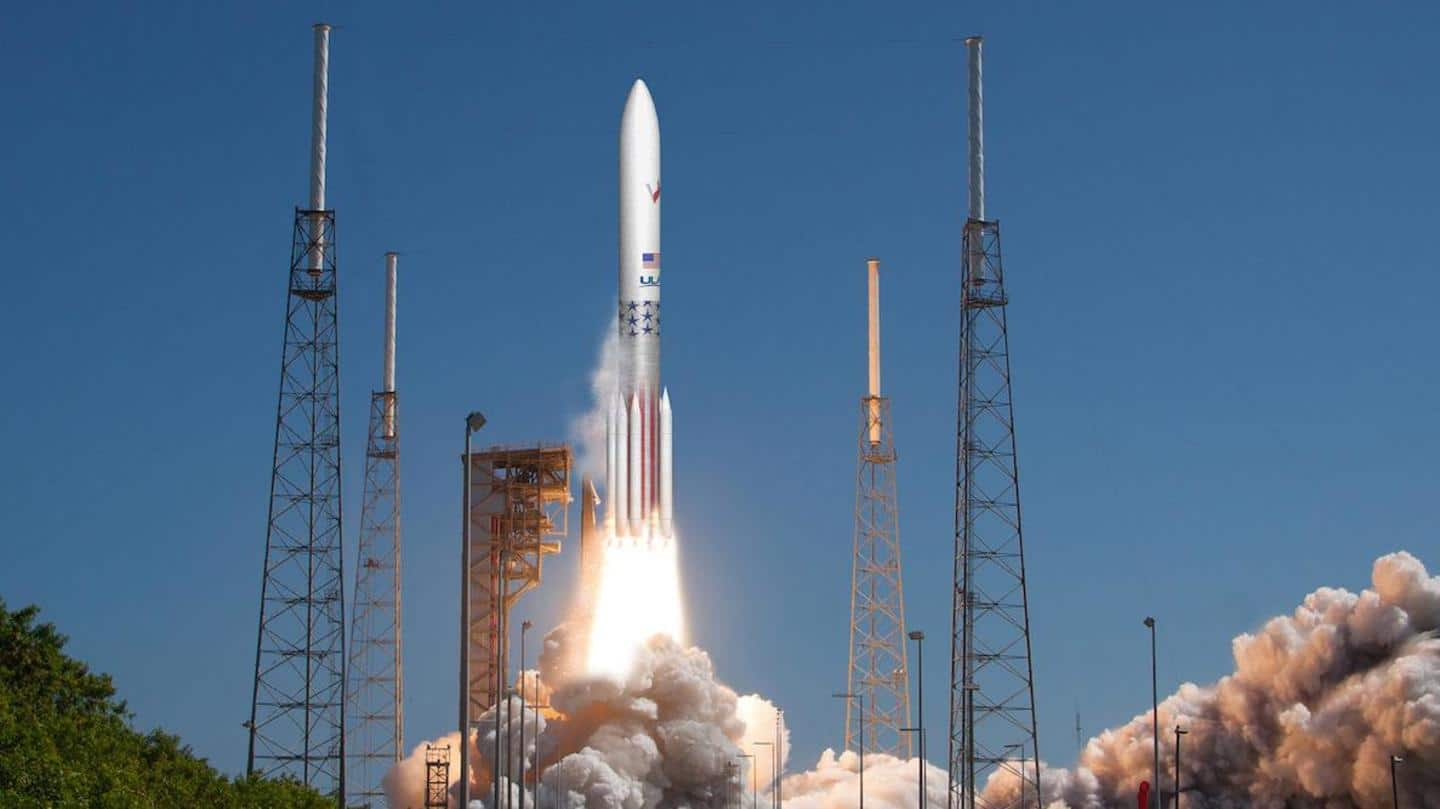
Amazon changes rockets for its Kuiper satellites: Here's what happened
What's the story
It won't be much longer before we get a glimpse of Amazon's internet-from-space. The first two satellites of the space-based Kuiper constellation will be launched early next year.
However, they won't be aboard ABL Space Systems' rocket as previously planned.
Instead, they will hitch a ride on the Vulcan rocket, which is being developed by United Launch Alliance (ULA), a Boeing-Lockheed Martin joint venture.
Context
Why does this story matter?
Amazon and ULA are uniting to send the former's first prototype internet-from-space satellites. The two will also be thinking about taking on their common foes - Starlink and SpaceX.
The Jeff Bezos-owned company is already behind Starlink in providing internet from space. It probably doesn't want any more delays.
The Vulcan rocket is a perfect replacement, considering it's been developed to challenge SpaceX.
Switch
Launch delay prompted Amazon to switch rockets
The two prototype satellites are part of Amazon's ambitious Kuiper network. They are called Kuipersat-1 and Kuipersat-2.
As per earlier plans, they were supposed to be taken to the low-Earth orbit by launch start-up ABL's RS1 rocket. However, delays have forced Amazon to change the launch vehicle.
Now, the satellites will hop on ULA's Vulcan rocket in the first quarter of 2023.
Trial
Amazon and ABL still have an agreement for further launches
Amazon isn't saying goodbye to ABL though. The two still have a contract for at least two launches.
On the other hand, Amazon has already bought 38 future Vulcan launches, so this will be a good test run for the rocket.
Vulcan is waiting for a pair of BE-4 engines by Blue Origin and the lunar lander of Astrobotic to make its debut.
Vision
Kuiper network will provide high-speed internet all over the world
Amazon's Project Kuiper is a plan to build a network of 3,236 satellites in low-Earth orbit. The company has said that it will invest over $10 billion in the project.
The company will provide high-speed internet in every part of the world. In 2020, the Federal Communications Commission showed the green flag to Amazon's systems.